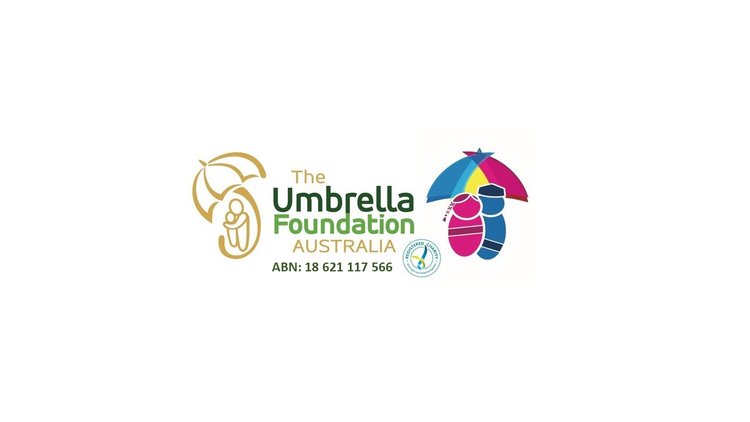Reintegration: what is it?
Reintegration refers to the process of reuniting a displaced, trafficked or abandoned child in Umbrella’s care with their family. This involves ensuring that the situation at home is stable and the child’s needs can be met in a caring environment.
Why do we do it?
“… the best place for a child … is with their family" Umbrella is committed to the safety, health and happiness of the rescued children in our care. The UN Convention on the Rights of a Child indicate that the best place for their psychosocial development is with their family or community of origin. Umbrella shares this stance and, where possible, we strive to return these vulnerable, isolated children from short-term housing back into a network of familial support and security.
How do we do it?
Jalman (middle) at home with his brother and Step Father in Langtang.
Reintegration is a long process that begins with our field officers gathering information about the child, their village and family. These are contacted and invited to spend time together. Gradually, the family bonds are tied and, after monitoring that the situation is stable and safe, the child is brought back to their village home. Umbrella continues to provide financial support towards education and living expenses, and regularly visits them to monitor their progress in terms of health and education, ensuring they are socially and emotionally happy. Check out the process in the sidebar→
In the early days, Umbrella worked closely with Next Generation Nepal (NGN) to re-connect our children with their families and communities. Our reintegration officers and the NGN team travelled the country searching villages for the children’s families, with nothing but photos, letters and scraps of information to help find them.
Umbrella have since hired a dedicated team who have become renowned in their own right for operating an effective and successful reintegration programme, and have been approached by other children’s homes to support similar endeavours in an advisory capacity.
Foster Care
For 4 of the children in Rasuwa, it was not deemed suitable to fully and permanently reintegrate them as there was no local school for them to attend. Therefore, Umbrella established a foster care home in Syaphrubesi, Rasuwa to accommodate them in a safe, family environment where they are looked after and can go to school. Here, they are also close enough to their family homes that they can visit on weekends/public holidays and are growing up immersed in their own cultural and traditional environment.
The challenges
Reintegration is by no means a simple or uncomplicated process:
- As the majority of the homes that the children were rescued from cared little about their well-being, they kept no official records of their backgrounds. Our team tries to salvage as much information as possible from the children themselves and from whatever records we can uncover.
- Convincing parents that their child is better off within the family unit is difficult, especially when they see that they are receiving a good education and are being well cared for by us.
Although a basic home and living, Yanzen (left) and Yu Dolma (right) are happy to be back living with their little sister and parents!
- We must also accurately assess the family situation and ensure that they are financially capable of taking over care of their child. When reintegration is in their best interests but there are financial constraints, Umbrella offers assistance by paying the child’s school-related costs and living expenses.
- Many Umbrella children are orphans, having lost at least one parent during the civil war. In cases where the father or mother has died, the family’s financial condition is often extremely poor and too unstable to support their child. And where neither mother nor father are living, it is difficult to trace relatives and burden them with the care of an additional child. Finally, where a mother has re-married, the child is often not welcome into this new marriage.
- It is a sad fact that many of the families were involved in the trafficking of the child in the first place, thereby creating a risk of repetition. After every reintegration there must be continuous follow-up visits by our team to monitor the children’s progress and to assess the success of the process.
From a young age, children work long hours in dangerous conditions at brick factories to support family income
- Despite our best efforts, there are unfortunate cases. Some time ago, two girls were reintegrated with their parents in what seemed like a successful case. Two weeks later, our field officer conducted a routine follow-up visit and discovered they were now in brick factories working long, hard days in dangerous conditions for small amounts of money. Umbrella’s support to the family was immediately discontinued and the girls were re-rescued with help from the Child Welfare Board. They are happily back in our homes, where they are looked after properly in a warm, caring and supportive environment.
The results so far
Of 388 rescued, 385 children have been reconnected with their families.
There have been 172 successful permanent reintegrations.
All of the children in Umbrella’s homes are at some stage of the reintegration process. Most have already been reconnected with their families and will hopefully be reintegrated before long. Many will remain with us indefinitely due to unstable family circumstances, such as being destitute beyond help, alcohol abuse, or the risk of re-trafficking. Sadly, some are at a stage where we still have no information about their background, original village or family status. We will however continue to work tirelessly to follow any leads or scraps of information that may result in finding the families of these lost children.
